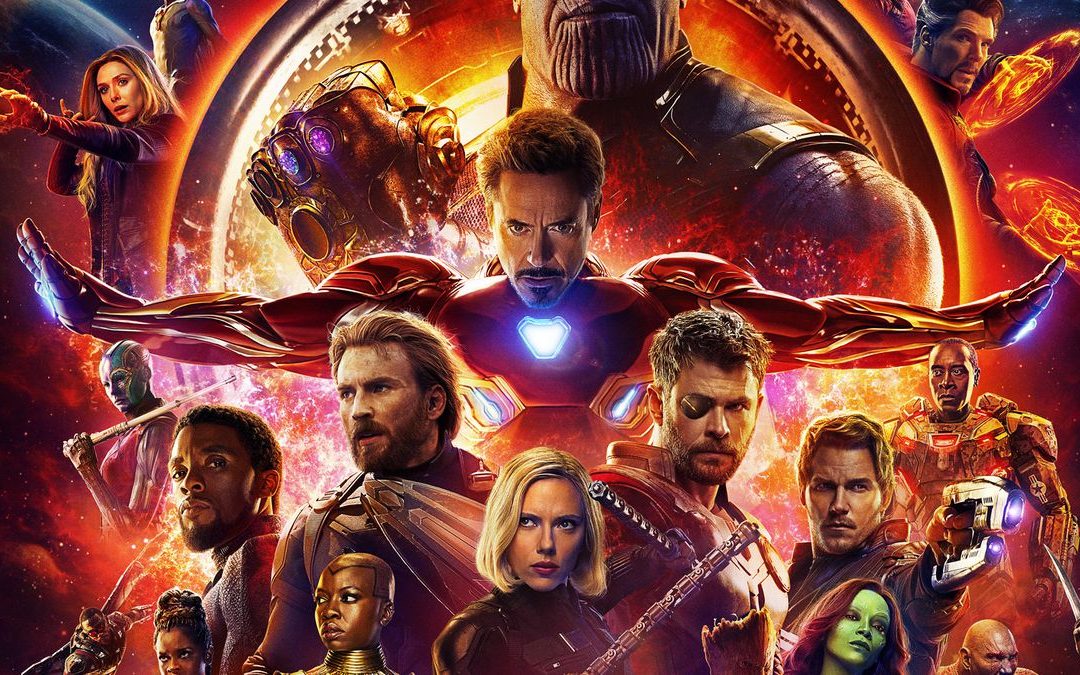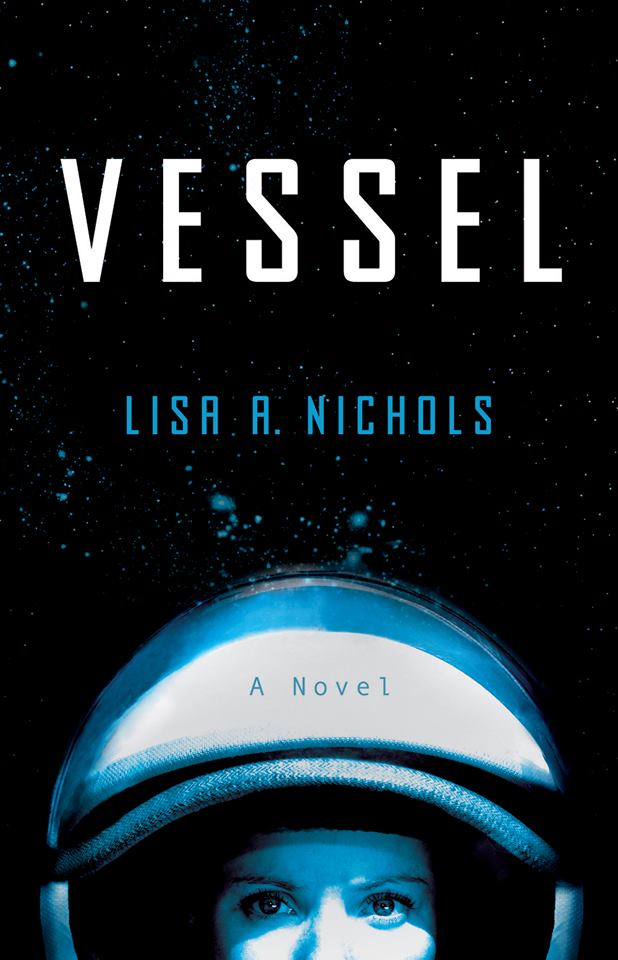Before I dive into why the Avengers: Infinity War and Avengers: Endgame are like romance novels, I wanted to share some great news! Publishers Weekly reviewed Vessel and called it a ‘tense, character-driven debut.’” I might have spent part of the day bouncing around my living room squealing, but I refuse to confirm it. 🙂
It’s odd the way my interests sort of overlap each other sometimes, echoing back and forth across genres. Spoilers for Avengers: Infinity War lie ahead, although honestly, how anyone has managed to remain unspoiled for it until now, I do not know.
In case you didn’t know, Infinity War ends with villain Thanos’ apparent victory, as he snaps his fingers and accomplishes his master plan: eliminating half of all life in the galaxy. To the shock of many moviegoers–including yours truly!–that includes many of the heroes we’ve come to love and cheer on. Among those lost in the Snappening (Marvel apparently calls it the Decimation, but whatever) were Black Panther, Spiderman, and most of the Guardians of the Galaxy… all of whom have sequels in the works (or at least had, with Guardians of the Galaxy 3 still up in the air). It seemed obvious, at least once we got over our shock, that the follow up Avengers movie (which we now know is called Avengers: Endgame) would have to undo at least some of the deaths from the Snappening, if not all of them.
For a lot of people, knowing that Endgame will likely fix things weakened the impact of the ending of Infinity War. I was not one of them. I was reminded of some people’s disappointment with Infinity War when I watched a discussion between some romance writers I follow on Twitter. I’ll start by clarifying: I am a romance reader. I’ve been one since I was a teenager. I have immense respect for romance writers. They work incredibly hard in a demanding genre, and bring in enough money to help keep the publishing industry able to take chances on new writers and new things. We’re talking $1B+ annually, and generally more than mystery/thriller and science fiction/fantasy combined. Despite that, their work is continually denigrated by people who’ve never read a modern romance. (I’ll spare you that rant, but believe me, I have one at the ready.)
This group of romance writers were collectively eye-rolling because once again, someone (or more likely someones) was questioning the necessity for a happy ending for a book to be called a romance. It’s a question/discussion that comes up frequently. Frequently enough that romance writers and readers have heard all of the usual arguments. It’s formulaic. It’s boring if you already know how the book is going to end. Happy endings are unrealistic, simplistic, and too easy. Etc., etc. Often it comes up when someone has yet again written something marketed as a “romance” where the ending is unhappy, and then gets upset when they’re roasted by romance readers who are–understandably–pissed off.
If that seems odd to you: imagine reading an Agatha Christie novel where at the end Hercule Poirot shrugs and goes, “I have no idea who did it” and swans off with his moustaches leaving everyone in the lurch. You’d be pissed, right? Because that’s the rule of mystery novels: they get solved at the end. Well, “happily ever after” endings (HEA for short, or sometimes “HFN”, happy for now) are a rule of the romance genre.
This seems hard for some people to understand, and it took me a while to figure out why. For romance readers, the joy is in the journey. Sure, we know that John and Jane are going to wind up happily in love, but we want to know how they get there. And a good romance writer can keep you on tenterhooks by presenting situations where it seems like there’s just no way there can be a happy ending–and then get you there. Being surprised by the ending isn’t the point.
Which… leads us back to Infinity War and Endgame, and really, superhero movies in general. Yes: Some of the pain we were put through in IW will be resolved in Endgame to a happier ending. The question that holds all of the tension isn’t, “How will this end?” It’s “How will they get there, and what will it cost them?” It may end up costing them quite a bit. As some people have noted, most of the surviving Avengers are the originals… and the ones whose Marvel contracts are up after Endgame. There’s no guarantee there that all of them will survive.
We don’t read romances to find out how they end. And honestly, we don’t– or at least I don’t–go see Marvel movies to see how they end. I know they’re going to end with the bad guy defeated and the good guys–most of them, at least–victorious. That was one reason why Infinity War was such a slap in the face: they broke that unwritten rule. Thanos won. The only reason it worked is because we all knew that Infinity War 2 was coming out soon to resolve it, to bring back the lost people, and to defeat Thanos.
We go superhero movies to watch the good guys struggle and be heroic in the struggle. We read romances to root for the characters and to cheer for their relationship to develop. In both cases, when the story is put together skillfully, the tension comes from not knowing how in the world Iron Man (or John and Jane) are going to get out of this one.
Sometimes, we dive into stories not to see if there is a happy ending, but to see how the characters earn their happy ending. Convincing your audience that the HEA, with superheroes or lovers, is well-earned… that’s the hard part.


